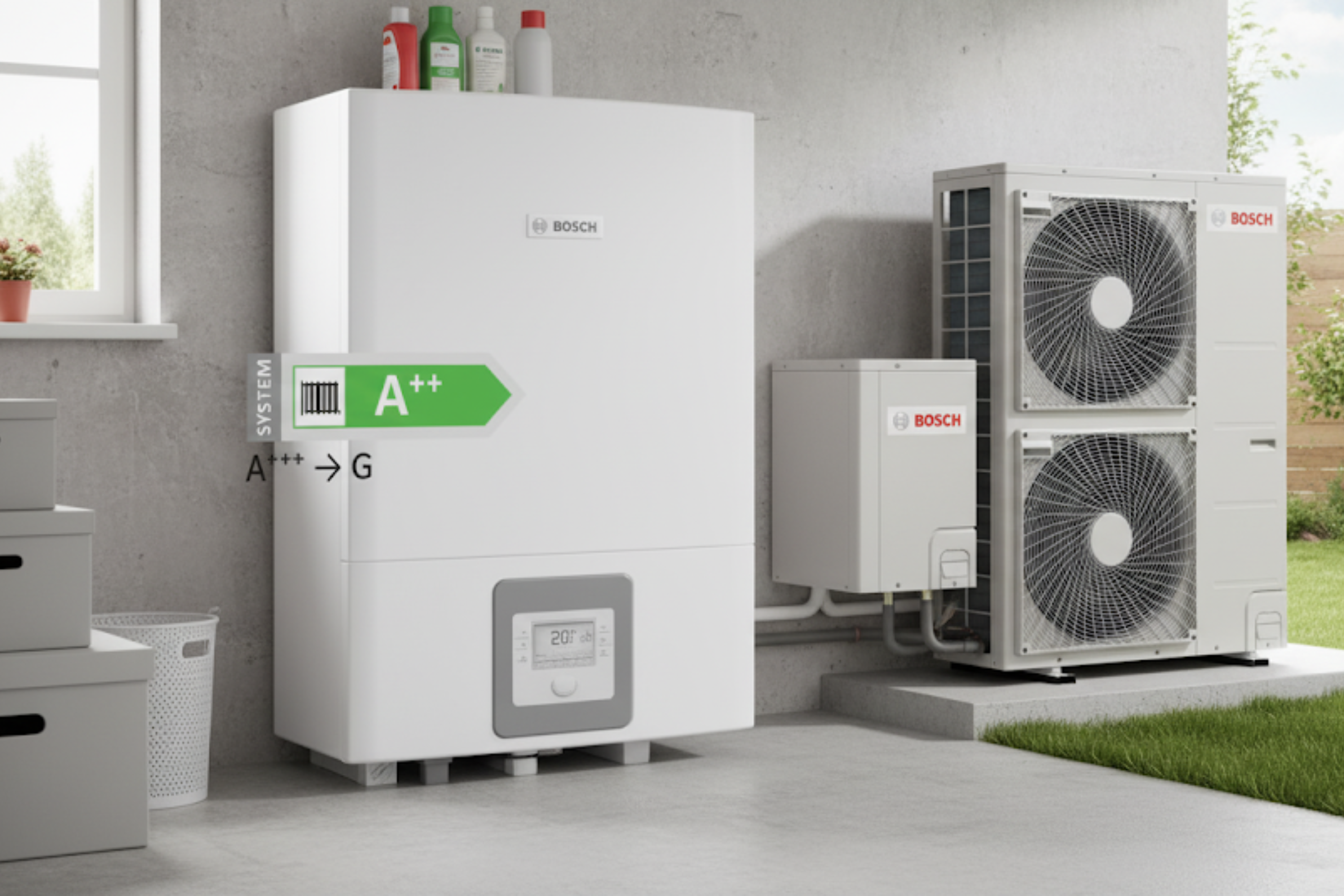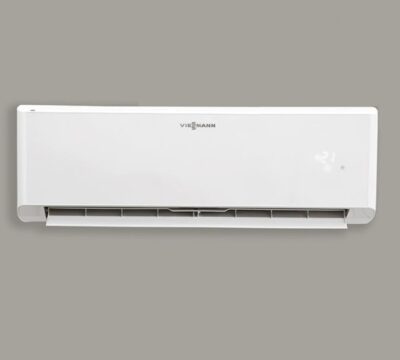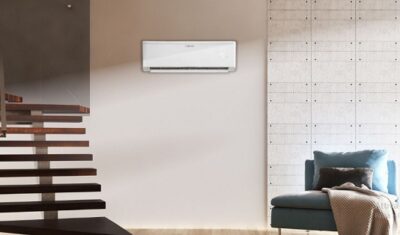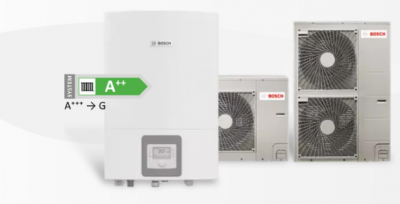Gas and electricity bills are becoming increasingly unpredictable and weigh heavily on household budgets, while the need to reduce our environmental impact is becoming ever more urgent. Finding a single solution to heat your home in winter and cool it in summer often seems complicated and expensive, forcing many of us to manage separate systems.
You continue to rely on a traditional boiler that consumes fossil fuels and an air conditioner used only in the warmer months, doubling maintenance and operational costs. Every time you turn on the heating, your mind races to calculate the cost and the environmental impact of emissions. But what if there were an innovative technology capable of solving both problems, using clean and renewable energy already available in nature?
The heat pump is the smart, efficient solution you’ve been looking for. In this complete guide, we’ll explain in simple terms what it is, how it works, and why it’s a winning choice for both comfort and your wallet.
What is a heat pump in simple terms?
Imagine a refrigerator running in reverse. While a refrigerator takes heat from the inside and expels it outside, a heat pump does the exact opposite: it extracts heat from an external natural source (such as air, water, or ground) and transfers it inside your home to warm it. And in the summer, it can reverse the process to cool your spaces.
It’s an electrical appliance that doesn’t generate heat by burning fuel, but “moves” it from one environment to another, using a simple physical principle.
Air conditioner Multisplit 2 Viessmann series Vitoclima 300-S/HE
€3.023,16 – €4.343,20 VAT incl.Air conditioner Multisplit 5 Viessmann series Vitoclima 300-S/HE
€7.106,50 – €7.338,30 VAT incl.READY FOR DELIVERY – BOSCH heat pump CS3000 AWS 15s-ES series code 7735252172
The key difference with a traditional boiler
A gas boiler burns methane to generate heat, producing CO2 emissions and relying on a fossil fuel. A heat pump, on the other hand, uses electricity only to power the compressor and fans needed to transfer heat already present in the environment. For every kWh of electricity it consumes, it can produce up to 4–5 kWh of thermal energy—an extraordinary efficiency.How a heat pump works: the magic of the refrigeration cycle
The secret of the heat pump lies in a closed circuit through which a special refrigerant fluid flows. This fluid can evaporate at very low temperatures, absorbing heat in the process. The operation is based on four fundamental steps.Step 1: the outdoor unit captures heat
Even when it’s cold outside, the air contains thermal energy. The fan in the outdoor unit pushes air toward the evaporator, where the refrigerant fluid, at a very low temperature, absorbs heat and turns into gas.Step 2: the refrigerant gas heats up
The gas is drawn into a compressor (the heart of the system), which compresses it, greatly increasing its pressure and, consequently, its temperature. Now the gas is extremely hot and ready to release its energy.Step 3: heat is transferred to the home system
This hot gas passes through a condenser, where it transfers its heat to the water in your heating system (radiators, underfloor heating panels) or to the air (in the case of indoor split units). As it releases heat, the gas cools and returns to a liquid state.And for cooling in summer? The cycle reverses
Through a reversing valve, the process is simply inverted. The heat pump absorbs heat from the indoor air and expels it outside, just like an air conditioner. One system, double comfort.Main types of heat pumps
Not all heat pumps are the same. They differ based on the source from which they extract heat and how they distribute it indoors.Air-to-water heat pump (most common)
This is the most widespread and versatile solution. It extracts heat from the outside air and transfers it to the water in the heating system and/or domestic hot water. Ideal for both new constructions and renovations.Air-to-air heat pump
It works like a classic inverter air conditioner: it takes heat from the outside air and releases it indoors via split units. It’s an excellent solution for summer cooling and for heating during mild seasons.Geothermal and water-source heat pumps
These more complex and expensive systems use heat from the ground (geothermal) or groundwater (water-source), sources that maintain a much more stable temperature throughout the year, ensuring even higher efficiency.All the benefits of installing a heat pump
Choosing a heat pump means making a smart investment for the future of your home and the planet. Here are the main benefits summarized:- One system for heating and cooling: Heat, cool, and produce domestic hot water with a single unit.
- Significant cost savings: Drastically reduce your gas bill, with energy cost cuts up to 70%.
- Maximum energy efficiency: Harness free, renewable energy, improving your property’s energy class.
- Environmental sustainability: Eliminate direct CO2 emissions, contributing to a cleaner environment.
- Access to incentives and tax credits: Installation is supported by important state benefits.
- Greater safety: Eliminates risks related to gas leaks and combustion.
FAQ
How much can you really save with a heat pump?
The short answer: a lot, but it depends on several factors. Actual savings are influenced by your home’s level of thermal insulation, the type of distribution system (underfloor heating is ideal), and electricity prices. Under optimal conditions, you can expect bill savings between 40% and 70% compared to a gas boiler.
When is a heat pump not the best choice?
A heat pump may not be ideal for very old homes with poor thermal insulation (energy class G). Additionally, if you are still using old cast-iron radiators that require high-temperature water, system efficiency may decrease. In such cases, it is essential to first improve the building envelope (insulation, windows).
Heat pump and photovoltaic system: the winning combination for energy independence
The real revolution comes from pairing a heat pump with a photovoltaic system. This way, the electricity needed to power the compressor is produced for free by the sun. Not only can this eliminate your heating and cooling costs, but it also moves you closer to true independence from the national energy grid.
Is a heat pump the right choice for you?
The heat pump is no longer a technology of the future—it is the most practical and efficient solution available today for home comfort. It represents a higher initial investment compared to a boiler, but the benefits in terms of savings, sustainability, and property value more than repay it over time.
Whether you are building a new home, renovating, or simply looking for a way to cut energy bills and reduce your environmental impact, the answer is almost certainly yes.
















